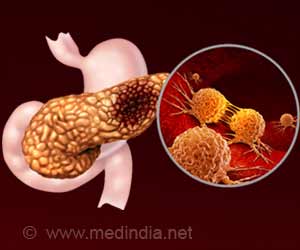Grade II tumours may progress to become cancerous and more aggressive treatment may be needed to try to control their spread. Radiotherapy or surgical removal of the tumour is the preferred methods for meningioma patients
‘Simple blood test that identifies a novel blood biomarker known as the protein Fibulin-2 (FBLN2), could reduce, or replace the need for intrusive surgery when determining the best course of treatment for patients with a specific type of brain tumour such as meningiomas. This contributes to the development of more personalized treatment options for patients with meningioma.
’
However, between 70 and 85% of meningioma cases are lower grades. Thus carrying out the blood test or liquid biopsy for these patients may help them to be spared from surgery or radiotherapy.
Although the FBLN2 has been linked to other types of cancer such as forms in the lung, liver, breast and pancreas, it is not previously been shown to play a role in meningioma development.
“In this study, we identified FBLN2 as a novel biomarker that can distinguish grade II from grade I meningiomas. Higher levels of this biomarker were found in tumour samples from grade II meningioma compared with the grade I form. We also showed that higher levels of FBLN2 can be detected in blood samples from grade II meningioma patients, compared to those from grade I meningioma patients. The identification of FBLN2 as a biomarker for meningioma has significant potential to improve the diagnosis, treatment, prognosis and follow-up of meningiomas”, says Professor Oliver Hanemann, lead author of the study.
It is estimated that 16,000 people in the UK, are diagnosed with a brain tumour each year. Population under the age of 40 and children remain more vulnerable to brain tumours than any other cancer.
It is obvious that grade II meningioma lacks the best management strategy, where data uncovered on FBLN2 could become a valuable tool for identifying and treating meningioma that is accessible through a non-invasive blood test. Thus the study findings may help contribute to the development of more personalized treatment options for patients with meningioma that would demolish the need for surgery.
The study also requires further research to assess the accuracy of diagnosing meningioma using a liquid biopsy for FBLN2 in comparison to current methods.
Source: Medindia



